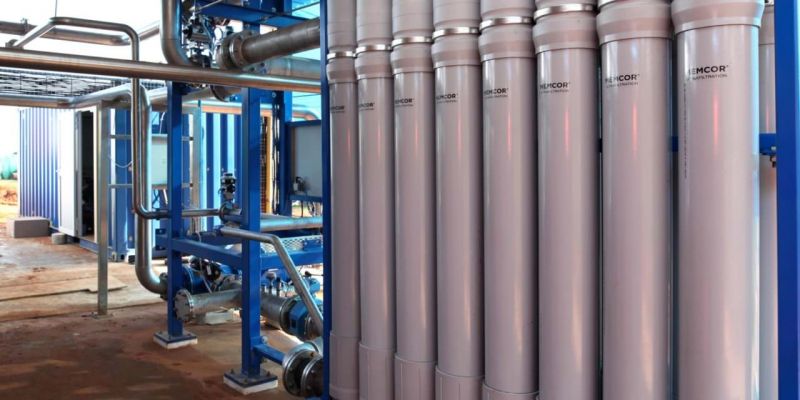Embracing UF Technology: Exceptional Water Quality and Improved Operational Experience
Published on by Water Network Research, Official research team of The Water Network in Technology
Ultrafiltration membrane systems provide the ability to treat poor-quality feedwaters and produce excellent final water quality.
By Herman Smit, managing director of Quality Filtration Systems

Image Source: Infrastructure News
Ultrafiltration (UF) systems are ideal for new installations or upgrades to existing filter systems or clarifiers, cutting operating costs and decreasing the plant footprint while delivering exceptional value over the entire system life cycle. The main benefit of UF is a fully automated process that reduces operator involvement.
This eliminates the need for constant monitoring and decision-making, addressing South Africa’s skills shortage while providing the opportunity to upskill operators, as well as ensuring quality water output. Each module comprises thousands of membrane fibres with microscopic pores on the membrane surface, which reject particles greater than 0.04 μm.
The experience of Quality Filtration Systems (QFS) in the implementation of membrane technologies in South Africa not only provides exceptional final water quality but an improved operational experience. However, it is important for clients to understand the UF membrane system to effectively and confidently implement the technology.
Filtrate system
Raw water must be screened to remove large solids before it enters the UF membranes.
Some systems include other raw water pre-treatment, such as coagulant dosing or pH correction. UF systems reduce chemical consumption, as no coagulants are required to form a bigger floc for filtration.
Filtrate flow rate is typically controlled by a variable-speed drive on the feed pump. Filtrate typically flows to a local filtered water tank where a level switch or transmitter is used to monitor the maximum level an place the membranes into standby while the tank is full.
Backwash
The backwash process is key to efficient operation. As feed passes through the membrane barrier, a filter cake builds up on the membrane surface, increasing the resistance to flow. Short reverse flow of filtrate removes the retained solids from the membrane fibre surfaces.
The control system typically initiates an automatic backwash every 20 to 60 minutes of filtration, depending on feed quality. This allows waste solids to be completely drained from the membrane surface, eliminating solids accumulation and biological fouling.
Clean-in-place (CIP) cleaning cycle
When the build-up of foulants on the membrane modules increases the trans membrane pressure or reduces flow rate, a CIP cleaning cycle is usually required. Cleaning may also be initiated simply on an elapsed time basis, a particularly useful strategy to maintain cleanliness in potable water systems.
Automation
Standard UF systems are supplied with a feed and filtrate pressure transmitter and may have additional local instruments such as flow, temperature and pH sensors, to monitor the operation of the system. A programmable logic controller controls all operational functions while a human interface module allows the operator to make limited adjustments.
If the UF operates outside normal limits, a warning is typically generated, while operation outside wider limits can generate a shutdown alarm, reducing the risk of damage to system components.
Conclusion
The assurance of excellent final water quality with less operator involvement is a big advantage in the simplification of plant operation.
The configuration of UF membrane systems offers the ability to treat poor-quality feedwaters with excellent output results, in line with government’s drive to increase the production of potable water.
QFS has in-house mechanical and electrical engineering capabilities to support the design of these systems and provide local components and engineering practices, ensuring competitive costs and adherence to local requirements. The company provides a complete installation and commissioning service, as well as operations and maintenance services, to assist operators with training.
QFS would like to acknowledge the assistance of Evoqua Water Technologies in compiling this article.
Source: Infrastructure News
Media
Taxonomy
- Ultrafiltration
- Membrane Bioreactor Systems
- Filtration
- Filters
- Membranes
- Filtration Solutions
- Polymeric Membranes
- Filtration
- Membrane Technology
- High Rate Filtration
- Sea Water Filtration
- Membrane Filtration
- Filtration
- Nanofiltration
- Molecular Biology
- Filtration Separation
- UF membranes/cassettes for waste water treatment MBR
- Water filtration, purifiers, nano filtration
- Membrane distillation